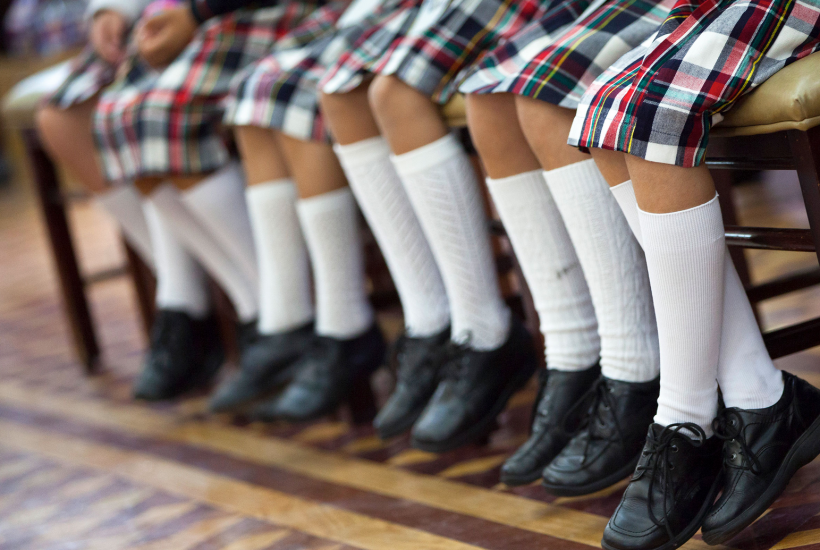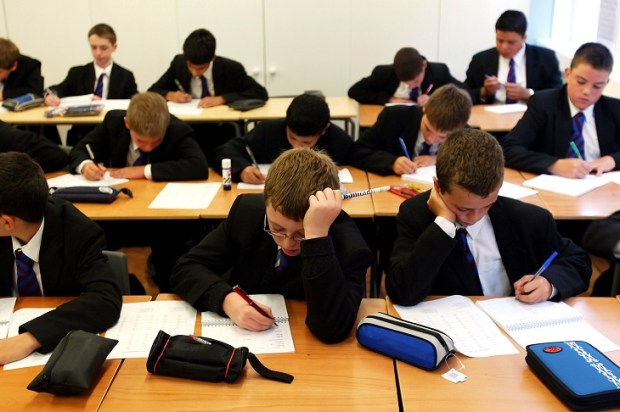Selective public schools across the country have again come under fire for their success as opponents claim they inflict ‘brain drain’ on surrounding schools. Even the parents, often blamed for not doing enough, are being criticised at these schools for entrenching “concentrated advantage” by supporting them too much according to one recent study by Christina Ho and Chris Bonnor.
The detractors of selective schooling argue that comprehensive schools’ performances in tests such as NAPLAN fall when they share a region with a selective school. What they never discuss is the performance of individual students who remain at comprehensive schools. While the average performance of a school may fall as its highest-achieving students enrol in a selective school catering for their abilities, this says absolutely nothing of the marks of the individual students before and after the option of a selective school became available. By focusing on the performance of ‘schools’ and not individual students themselves, these detractors miss the point of our education system. Instead, they would apparently rather see schools perform the same rather than students perform at their best.
More shamelessly, the attack on parents of students at selective schools should outrage us all, not only because of how critical parental engagement is, but also because it is based on a total falsehood — the idea that selective schools are unusual in this respect. When it comes to parental contributions at public schools, the top 10 in NSW are split down the middle with five from selective and five from comprehensive schools.
So what’s all this commotion about then? Pride and envy, two of the deadly sins and two of the lowest common denominators when it comes to opponents of selective schools. Comprehensive school administrators are savvy. They know parents look at NAPLAN test scores when considering a school. They fight tooth and nail to claim the highest performing students, with spots on the annual HSC Distinguished Achievers list as their trophy – whether these students might have performed even better at a selective school is not their biggest concern.
For comprehensive school administrators, teachers, and parents too, there is a thought that goes unspoken: “I don’t want the next-best.” Parents want their children at the best school, principals want to run the best school, teachers want to take classes with the best students. What’s more, they want to be able to say they have it. A selective school, attracting high performing students and actively engaged parents, reduces the available pool for the comprehensive school and goes against the interests of their school –- even if it may be in the interest of the individual student.
This needn’t be an issue –- comprehensive schools are preferred by many students and families regardless of the improved average academic outcomes in selective schools since they may provide value elsewhere.
For example, students interested in taking up a trade would feel more comfortable at a comprehensive school than your average selective school where students are under peer pressure to enter university or qualify for particular courses like law, medicine or engineering that may not be suited for the individual student regardless of their intelligence or work ethic.
Some students and families might prefer the increased focus on non-academic pursuits in comprehensive schools, such as sports. Similarly, the opposite may apply for more academically-inclined students who would feel right at home and thrive under the more rigorous academic competition of a selective school.
Some comprehensive schools like Sydney’s Cheltenham Girls or Cherrybrook Technology High actually beat or rival some of their selective counterparts even in academic outcomes, proving that schools which focus on their own performance rather than trying to reduce competition from other schools are capable of coming out on top.
Ultimately, education policy should promote more choice for individual parents and children – not less. This is the best way to bring out the best in each individual child, not a false one-size-fits-all approach.
Envious detractors continue to repeat the claim that selective schools entrench inequality or the ludicrous suggestion that parents should support their children’s schools less. If these schools cause comprehensive school advocates to worry that they might not be the best the government has to offer, then this is a good thing as it incentivises teachers and administrators to work harder to stay competitive.
Instead, the solution of comprehensive system advocates is akin to cutting down the tallest trees in the forest so that all are equal rather than letting each tree grow to marvel at the heights they can reach. We must value the interests of each unique student. Not the interests of bureaucrat school administrators who hate competition.
Eliot Metherell is a Research Associate at the Australian Taxpayers’ Alliance.
Got something to add? Join the discussion and comment below.
Got something to add? Join the discussion and comment below.
Get 10 issues for just $10
Subscribe to The Spectator Australia today for the next 10 magazine issues, plus full online access, for just $10.


























Comments
Don't miss out
Join the conversation with other Spectator Australia readers. Subscribe to leave a comment.
SUBSCRIBEAlready a subscriber? Log in